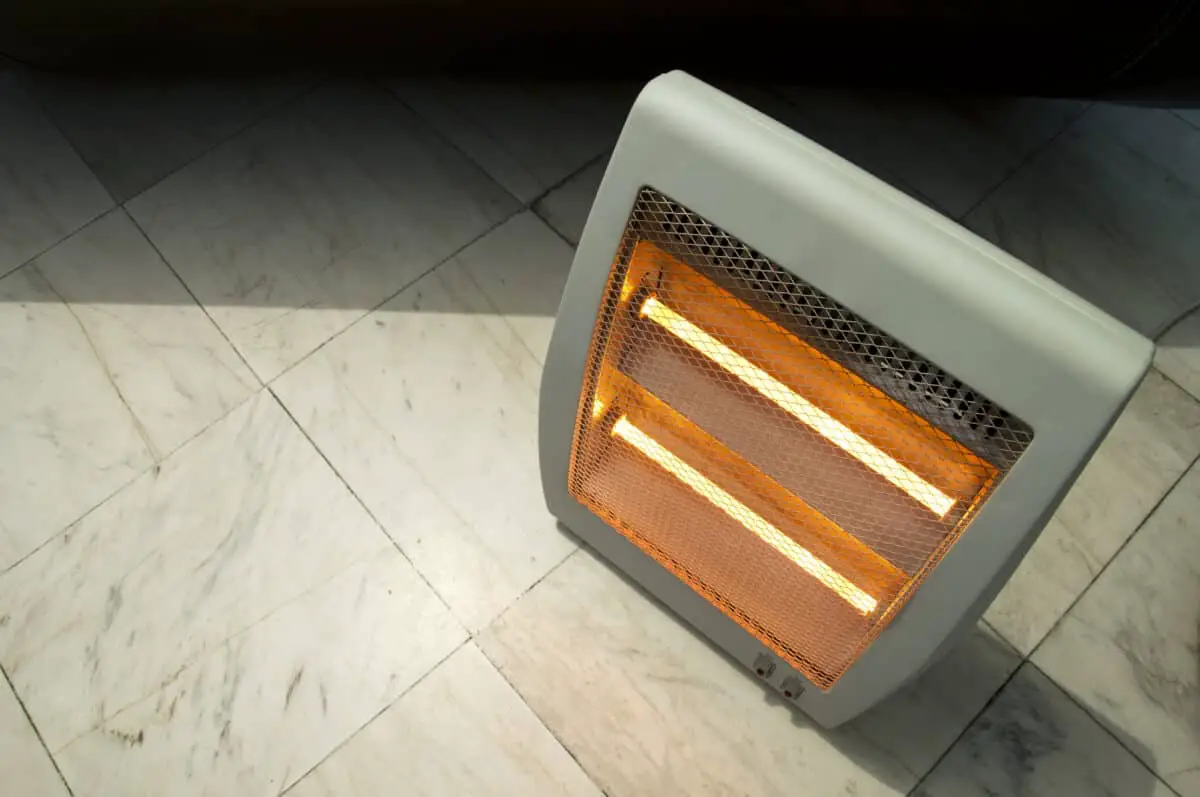There is little to worry about with electric heaters and carbon monoxide poisoning, however, they do have other health and safety implications to consider when purchasing.
Electric heater usage has caused complaints of dizziness and nausea, but it’s not due to carbon monoxide exposure.
As you read on, we will dive deeper into the causes and remedies of the dry air and sickly feeling caused by electric heaters.
Portable electric heaters are an efficient way to heat areas where conventional heating is not adequate, particularly in colder evenings.
As years have gone by electric heaters have become a lot more affordable, portable, and efficient.
If you are thinking of getting a portable electric heater, read on to find out the pros and cons of getting a portable electric heater.

Related Reading: Do Electric Heaters Dry the Air? [ANSWERED]
Table of Contents
Are Electric Heaters and Carbon Monoxide Making You Sick?
Electric heaters provide a quick and efficient way to heat indoor and outdoor areas, even in winter.
Some people have reported feeling sick and dizzy while using their electric heater.
You don’t need to worry about gases or fumes from electric heaters causing carbon monoxide poisoning, as the heat given off is the only concern.
Using an electric heater can dry the air and cause discomfort, but there are remedies available.
- For better performance, ensure proper ventilation when using an electric heater indoors. Open a window or door to allow fresh air in.
- Put a bowl of water in the room to warm it up, but keep liquids away from the electric heater.
- Ensure to use the heater only when necessary to avoid drying out the air.
- If your heater has a thermostat, set it to the desired temperature. This will automatically turn off the heater when the room reaches the optimal temperature.
- It’s important to never leave an electric heater on while sleeping, as it can pose a fire risk.
Can Electric Heaters Give You Headaches?
As previously mentioned, any source of heat can dry out a room by removing moisture from the air.
When the air is dry, this can cause some people to get dehydrated, and with this comes headaches.
This has no relationship to electric heaters and carbon monoxide.
If using an electric heater causes headaches, stop using it and have it serviced by an engineer.
It is advisable to consult a healthcare professional about your headaches.
What Kind of Heaters Produce Carbon Monoxide?
Carbon monoxide, a highly toxic gas, is both colorless and odorless.
When inhaled, it prevents blood cells from absorbing oxygen, leading to carbon monoxide poisoning.
Heaters that burn fuel such as gasoline, kerosene, wood, or wood chips can produce carbon monoxide, which can lead to poisoning. However, this is not a concern with electric heaters.
The benefit of using fuel heaters is their portability and ability to quickly heat a large area, while also having an aesthetically pleasing appearance.
The use of fuel-burning heaters indoors requires a special chimney to direct poisonous gases outside, reducing the risk of carbon monoxide poisoning.
An electric heater can be used safely in any dry situation as it does not produce harmful fumes or gases, debunking the myth of electric heaters and carbon monoxide poisoning.
How Dangerous Are Electric Heaters?
Electric heaters are generally the safest option, but can still be dangerous if not used properly.
Electric heaters should never be left unattended, mainly when being used around children or pets.
Caution should be exercised while using the heater as it can become exceedingly hot and touching it can lead to serious burns.
Electric heaters typically have a safety feature that automatically turns off the heater if it tips over, as they contain a sensor that detects movement.
The sensor can detect if the heater is upright or knocked over, and will automatically shut off in response.
This feature should never be taken for granted, and your heater should always be kept in its intended upright position.
When using an outdoor heater, do not use it in the rain or moist conditions.
Moisture can cause damage to electric heaters and present a risk of electrocution.
Make sure to never use an extension cable without a trip-switch fitted when using your heater. Also, cover the cord to prevent trips or falls.
You should consult your heater’s manual for safety tips and electricity usage information.
Download Free: National Fire Protection Association Electric Portable Space Heater Safety Guide
How Should I Store an Electric Heater?
During the summer months, you may not need your electric heater, so it’s a good idea to store it.
It is recommended to store electric heaters in a dry area, preferably in the original box.
Check underneath or at the rear of your heater for lugs. These help with flexibility for safe and efficient storage.
Before storing your heater, take the time to check for any damage.
If your heater has frayed wiring, it’s important to have it repaired by a trained electrician. They may need to replace the wire and fix any other damage.
It is not recommended to attempt repairing your heater on your own unless you have proper training in the field.
If you have any concerns, seek professional help or call the helpline provided in your manufacturer’s booklet.
Do not use a faulty heater and do not cover it while in use.
A heater should be placed in an obstruction-free area, away from flammables.
Conclusion
Electric heaters can transform uncomfortable areas into cozy spaces for relaxation and enjoyment, as long as there is a power supply available.
When using an electric heater, you can rest assured that you won’t have to worry about carbon monoxide poisoning.
You should remember to stay hydrated and allow for good airflow. This makes some models a great option for overnight heating.
Remember that all-electric products have particular hazards.
The safety tips in your booklet and this article must be followed for safe use.
Stay warm and safe!
Enjoy living the outdoor life!






